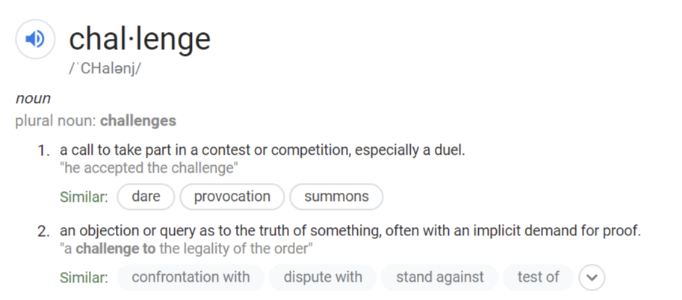Incremental Change and Loop Backs

Let's get unfiltered about something: the fitness industry has sold us a massive lie. They want you to believe that progress should be linear, that you should go from couch to crushing it without any bumps in the road. This black-and-white thinking has sabotaged more goals than any external obstacle ever could.
After four decades of trying to perfect myself and watching others do the same, I've developed what I call 20/20 Unfiltered Reality about change: see clearly what actually works, acknowledge what doesn't, and stop pretending that sustainable progress looks like a perfect upward line on a graph.
The Myth of Linear Progress (And Why We Keep Buying Into It)
I want you to think about a big change you attempted—maybe that "new year, new me" resolution or one of those 4-12 week challenges that promised to transform your life. How many times did the goal fall by the wayside? How quickly did that challenge become just another thing you "failed" at?
Here's my unfiltered reality: I've struggled with perfectionism since childhood.

Only in the last few years have I started practicing a different understanding of change by asking myself three crucial questions:
- What if I adjusted my expectations to expect adjustments, shortfalls, and course corrections?
- What if stumbling was the norm, not the exception?
- What if this messy, imperfect process was actually progress?
The Science Behind Sustainable Change (That Nobody Talks About)
Here's what research actually shows, and this might blow your mind: forming a new habit takes 2 to 5 months, not the famous "21 days" we've all heard about. If you've ever tried to make morning workouts stick or drink more water daily, you already know in your gut that three weeks is laughably unrealistic.
But here's where I get a little ranty:
Why do we keep perpetuating this 21-day myth? Because it sounds better in marketing copy. The real timeline doesn't fit neatly into a before-and-after Instagram post.
This is exactly why the "three steps forward, two steps back" pattern gets such a bad reputation. We've been conditioned to see it as failure when it's actually the most natural way humans learn and grow. Think about learning to drive: you didn't go from never touching a steering wheel to confidently navigating highway traffic in three weeks. You practiced in parking lots, then quiet streets, then busier roads, sometimes taking breaks when it felt overwhelming.
Your body and mind work the same way with any life change. You start easy (learning period), push yourself a bit (challenge period), then step back to a comfortable pace (integration period) where your mind and body can actually absorb the new normal. Fighting this natural rhythm is like swimming upstream—exhausting and ultimately pointless.
Redefining Challenge and Progress

When we apply this definition more broadly, embracing a growth mindset means celebrating incremental progress rather than demanding perfection. Human nature prohibits us from constant competition with oneself. No one can be "perfect" at anything. The best we can do is make progress toward a goal.
And there is a point, especially with fitness, where additional progress isn't physically possible. Sustaining is also only possible for a finite period of time. We don't blame the car for needing an oil change, so why do we fault our bodies for hitting a natural limit?
How Habits Actually Work
Scientists have discovered that changing habits requires three key elements:
1. New Reward Systems
Instead of getting satisfaction from old behaviors, you need to find pleasure in new ones. For example, if you want to stop stress-eating cookies, you might replace that comfort with a hot bath or calling a friend.
2. Changing Your Environment
This means removing triggers for old habits. If you want to stop checking your phone first thing in the morning, charge it in another room instead of keeping it by your bed.
3. Making Good Choices Easier Than Bad Ones
If you want to drink more water, keep a full water bottle on your desk and put the soda in the garage. The easier option usually wins.
Think of it like redirecting a river—you're not stopping the flow, just changing where it goes.
God grant me the serenity to accept the things I cannot change, courage to change the things I can and the wisdom to know the difference. —Reinhold Niebuhr (1892–1971)
Why Strategic Compromise Works
I learned this from watching good basketball coaches. They don't try to stop every single thing the other team does well—that's impossible. Instead, they pick the two most dangerous threats and focus on stopping those, accepting that the opponent will succeed at some things.
Your lifestyle changes work the same way. Maybe you can't meal prep every Sunday, work out five days a week, AND get eight hours of sleep every night while juggling work and family. That's okay. Pick the two that matter most right now and do those well.
For example, if stress is your biggest issue, maybe you focus on better sleep and one stress-relief activity daily. The meal prep can wait until those feel automatic. This isn't settling—it's being strategic about where to put your limited energy.
My Loop Back Method: A Better Way Forward

Instead of viewing setbacks as failures, I've developed what I call the Loop Back Method. It's designed to work with your brain instead of against it:
Phase 1: Gentle Start (Learning) Let's say you want to start exercising. Instead of committing to daily hour-long workouts (which, let's be honest, is setting yourself up for failure), start with 10-minute walks three times a week. Focus on learning the routine, not crushing personal records. Your only job is to show up.
Phase 2: Mild Challenge (Push) After a few weeks of consistency, add one 20-minute workout or an extra walking day. Keep it short-term—maybe just for two weeks. This builds confidence without overwhelming your system. Think of it as dipping your toe in deeper water, not jumping off the high dive.
Phase 3: Sustainable Pace (Loop Back) Here's where most people think they're "failing," but this is actually where the magic happens. Return to something easier than Phase 2 but harder than Phase 1. Maybe four 15-minute sessions per week. This isn't regression—it's integration. Your mind and body are getting comfortable with the new normal.
Phase 4: Honest Assessment Look at what actually worked in your real life, not what you think should have worked. Maybe morning workouts were impossible because you're not a morning person, but lunch walks were perfect. Use this real-world data to plan your next cycle.
The "loop back" isn't failure—it's strategic recovery that makes the next push sustainable. It's also why I've been able to maintain changes that used to be impossible for me.
Real Talk About Realistic Expectations
Here's what actually helps habits stick: giving yourself choices and starting with small, morning routines. Research shows that people who pick their own habits and do them in the morning have the best success rates.
Think about it—you probably already have morning habits that are automatic, like brushing your teeth or making coffee. You don't think about those anymore; they just happen. New habits work the same way, but only if you give them enough time to become automatic.
Those popular "21-day challenges"? They're great for motivation, but terrible for lasting change. Most complex behaviors—like regular exercise or eating better—need consistent practice for several months before they feel natural. That's not discouraging news; it's realistic news that sets you up for actual success.
Making Peace with Being Human
Here's the truth about perfectionism: it makes you quit faster and feel worse while doing it. When your self-worth depends on perfect execution, any small mistake feels like total failure.
I see this all the time with diet culture. Someone decides to "eat clean," then has a slice of birthday cake at a party and spends the weekend binge-eating because they've "already blown it." The cake wasn't the problem—the all-or-nothing thinking was.
Instead of chasing an impossible standard, focus on being excellent within real-life constraints. Maybe "excellent" eating means cooking at home five nights a week and being flexible on weekends. Maybe "excellent" fitness means moving your body consistently, even if some days that's just a walk instead of a full workout.
This isn't about lowering standards—it's about setting standards you can actually maintain while living a full human life.
The Bottom Line (Because We Need Some Real Talk)
Human nature thrives on variety, rest, and gradual progression. The most successful approaches to lasting change embrace this reality rather than fighting against it like we're defective machines that need to be fixed.
Here's my 20/20 Unfiltered Reality: Progress isn't about maintaining perfect consistency—it's about returning to your path each time you wander off it, with greater wisdom and self-compassion than before. The goal isn't to never stumble; it's to get better at getting back up.
By expecting loop backs, celebrating incremental progress, and understanding that 2-5 months is the realistic timeframe for habit formation, we set ourselves up for sustainable success rather than repeated disappointment. And honestly? That's a much better way to live.
Stop fighting your humanity. Start working with it.
Ready for more unfiltered reality about living intentionally? This approach to sustainable change is just one piece of the puzzle when it comes to optimizing your life across business, body, balance, and being.
Reference Appendix
Key Studies Supporting Sustainable Change
| Key Point | Study/Source | Summary/Findings |
|---|---|---|
| Habit formation takes 2–5 months, not 21 days | "Time to Form a Habit: A Systematic Review and Meta-Analysis of Health Behaviour Habit Formation" (2024) | Forming new habits typically requires 2–5 months, not 21 days. Consistency and personal choice matter. |
| Lally et al. (2009), cited by James Clear | Average time for a new habit: 66 days (range: 18–254). Progress varies by person and habit type. | |
| Incremental change is most sustainable | "A Mini Review of Habit Formation and Behavioral Change Principles" (2025) | Small, manageable changes (not drastic overhauls) lead to lasting results. |
| "Making Health Habitual: The Psychology of 'Habit-Formation' and General Practice" (2012) | Habit-based interventions with small steps are effective for long-term change. | |
| Progress is non-linear (loop backs are normal) | "A Chaotic View of Behavior Change: A Quantum Leap for Health Promotion" (2006) | Sustainable change is rarely linear; setbacks and adjustments are part of the process. |
| Perfectionism can block progress | Reviews on perfectionism and growth mindset (various, 2015–2025) | Perfectionism leads to burnout and procrastination; progress over perfection is more effective. |
| Three pillars of sustainable habit change | "The Power of Habits: How Small Changes Can Lead to Big Results" (2025) | 1. New rewards, 2. Changing cues, 3. Making new habits easy and accessible. |
| Morning and self-chosen habits stick best | "Making Health Habitual" (2012); Lally et al. (2009) | Habits chosen by the individual and practiced in the morning are more likely to last. |
| Behavior change requires Motivation, Ability, and Prompt | Fogg Behavior Model (BJ Fogg, 2008–present); Tiny Habits (Fogg, 2019) | For behavior to occur, motivation, ability, and a prompt must converge. Start with tiny, easy steps and celebrate small wins for lasting change12347. |
